At Propel25, Siddhant Puri, Head of Growth at Retool, offered a wake-up call for professional services leaders: AI is here, but the transformation has only just begun.
Despite headlines promising the end of knowledge work and a flood of AI tools entering the market, fewer than 1% of enterprise AI implementations are truly live. Yet nearly every company is running pilots, POCs, or strategy sprints. This marks the beginning of a platform shift that will reshape how PS teams operate, deliver, and differentiate.
Vision sellers vs. real builders: Cutting through the AI noise
We’re in an era of AI “vision selling.” Everyone, from cloud giants to garage startups, is promising AGI and radical disruption. But much of it is noise. For professional services organizations, the real work lies in building quietly effective, value-generating solutions, not in buying into doomsday or utopian narratives.
The challenge is twofold: cutting through hype while also avoiding cynicism. AI can dramatically transform services delivery, but only when it’s implemented thoughtfully, with a clear understanding of workflows, data ecosystems, and client contexts.
This is not a time for PS leaders to passively await disruption. It’s time to architect it, deliberately, incrementally, and aligned to business outcomes.
The future of efficiency: From friction removal to force multiplication
AI’s greatest immediate impact in PS is eliminating friction.
Admin tasks like timesheets, status updates, and handoffs have long been a drag on services efficiency. These are prime targets for AI agents and process automation. Retool’s PS team, for example, used Rocketlane’s APIs to build a bot that handles timesheet entries through a simple chat interface. A manual, error-prone, and time-sucking process was replaced by a few typed prompts.
This may seem small, but multiplied across teams and clients, these micro-automations yield macro-efficiency. They free up bandwidth for strategic work and reduce burnout among delivery teams. More importantly, they create a new PS operating model: one where automation is embedded into the daily flow of delivery.
The mindset shift here is key: treat AI as a teammate, not a tool. Like a good intern, it learns, evolves, and lightens the load. But it needs clear inputs, thoughtful oversight, and intentional design.
Software + services: The return of the full-stack ps organization
Historically, “software” and “services” have been positioned as opposites. You either build a product or you sell your expertise. But AI is blurring that boundary.
Many of the top AI companies today are software + services hybrids. They deploy teams to embed those tools inside customer workflows. This is becoming the new standard: solution-driven engagement where product and service are interwoven.
For traditional PS orgs, this creates both a challenge and an opportunity. The challenge lies in competing with AI-native players who bake delivery into the product experience. But it also offers an opportunity to build productized services that deliver faster, repeatable value.
This means PS leaders must develop “solution engineering” capabilities. Teams should be fluent in APIs, low-code tooling, and AI orchestration, not just Gantt charts and governance. It’s a shift from project management to value architecture.
From task execution to outcome ownership
The age of AI is ushering in a seismic shift in how professional services organizations define their value. Traditional models built around hours worked or tasks completed are giving way to models centered on outcomes delivered. This is a redefinition of what clients expect, what teams deliver, and how firms grow.
As AI systems increasingly handle repetitive workflows, from writing execution plans to analyzing transcripts in real time, the strategic value of professional services must evolve beyond execution. Consider this: AI can already assist in interview evaluations by analyzing a candidate’s responses live and suggesting follow-up questions. If tasks like this, once considered creative or judgment-driven, can be partially automated, what differentiates a great PS team?
The answer lies in owning the outcome, not the activity. Leading PS orgs are moving toward delivering business impact, not hours. Instead of staffing five people for implementation, they’re staffing one high-leverage resource with AI-powered assistance, and pricing accordingly.
This also demands a shift in positioning. Rather than selling capacity or time, PS teams must learn to sell solutions. When pitching a deal, they must be able to say: “This solution replaces 15 engineers on your side. Let’s quantify that value.”
It’s no longer viable to position PS as support for a product. It must be reframed as a critical enabler of transformation. That means:
- Bundling software and services into integrated offerings.
- Treating implementations as productized journeys with clear ROI.
- Training teams to communicate value in terms of business metrics, not delivery timelines.
This transition won’t happen overnight. But those who master it will move up-market faster, unlock deeper client relationships, and become essential partners.
The data layer: The quiet foundation of AI success
For all its promise, AI is not magic. It’s math, powered by data. And if that data is fragmented, inconsistent, or siloed, AI becomes unreliable or even unusable.
That’s why professional services leaders must stop thinking about tool consolidation and start thinking about data centralization.
At Retool, for instance, all operational data, from Salesforce, Gong, Rocketlane, and calendars, is funneled into Databricks. This single source of truth powers intelligent workflows and AI agents that understand context across the customer journey.
Today, most PS orgs run on a patchwork of tools: Sales lives in the CRM, CS lives in Notion or Gainsight, and Delivery lives in Rocketlane or Asana. The result? AI initiatives struggle because they lack the structured, accessible, and unified data they need.
A modern PS tech stack should prioritize:
- Data interoperability: APIs that allow easy flow between tools.
- Shared ontology: A consistent model for customers, projects, roles, and outcomes.
- Contextual integration: The ability for AI agents to access, correlate, and act on cross-functional data in real time.
Without this foundation, AI will stay stuck in the demo stage. With it, PS orgs can automate intelligently, personalize deeply, and deliver faster.
In short, data is the lever. It’s the raw material that powers every automation, every insight, and every decision. Ignoring it is no longer an option.
Rewriting the PS playbook: What the next 24 months demand
We’re not just living through a tech shift. We’re living through a professional identity shift for services teams. AI is changing the who, how, and what of PS delivery, and leaders have a narrow window to adapt or risk irrelevance.
Here’s what will define the leading PS organizations over the next two years:
1. Roles will be redefined.
The typical solution architect is evolving into an “AI Agent Engineer”. Someone who not only understands process design but can also orchestrate agents, prompt LLMs, and build thin tools atop APIs. Delivery managers will need to become outcome strategists. Technical consultants will become automation architects.
And it’s already happening. OpenAI and Salesforce are hiring for these roles. Retool’s own services team is evolving in this direction, branding roles around AI capabilities, not just delivery bandwidth.
2. Services orgs will act like product teams.
The best PS orgs won’t just deliver one-off projects. They’ll build reusable components, templatize best practices, and launch internal tools that improve over time. Think: internal startups within services teams. Every implementation, every customer workflow becomes a chance to build IP.
This “productization of services” enables scale, consistency, and better margins. It also creates a unique competitive moat.
3. Automation will drive self-service.
As AI agents become more capable, clients will expect more DIY options, whether for onboarding, reporting, or support. PS teams must design not just for delivery, but for enablement. That means building agents, tools, and content that clients can use directly.
It’s a shift from being the expert in the room to being the architect of expertise distribution.
4. Outcome-based pricing will dominate.
Time and effort are increasingly decoupled from value. If a two-week AI agent can deliver the same value as a six-month project team, clients will pay for outcomes instead of timelines. PS orgs must rethink how they price, scope, and communicate value.
This will require better measurement, clearer metrics, and the courage to move beyond legacy billing models.
Professional services is not being replaced by AI, but being redefined by it.
What you automate, what you build, how you sell, and how you measure success, all of it is changing. But those willing to experiment, invest, and reimagine their playbook will not just survive. They’ll lead.
Check out the rest of our Propel25 recaps here for more insights from the industry's best.
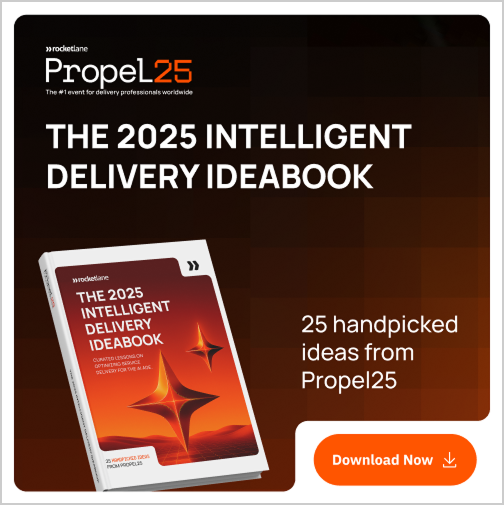

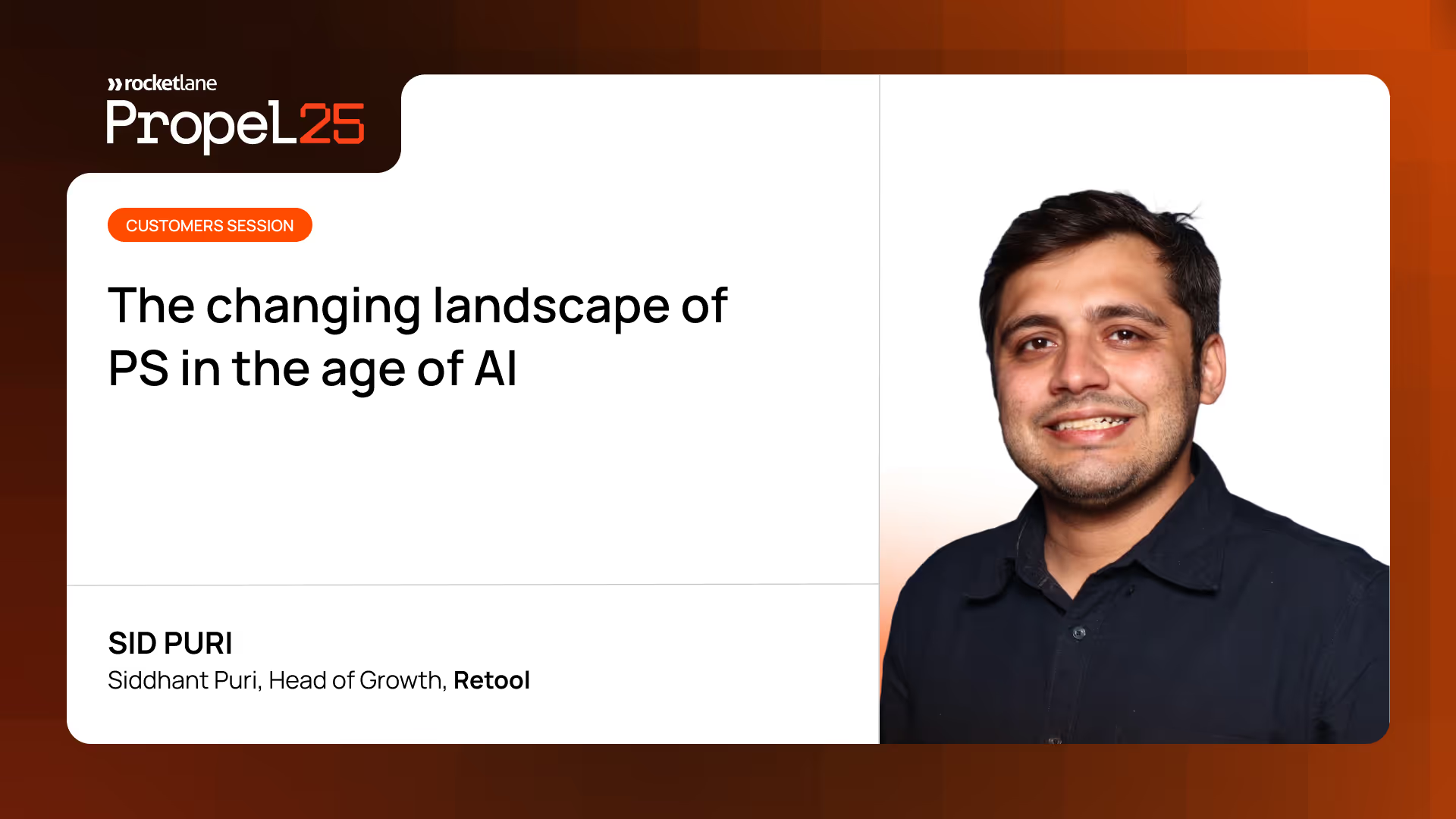





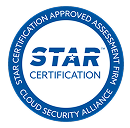











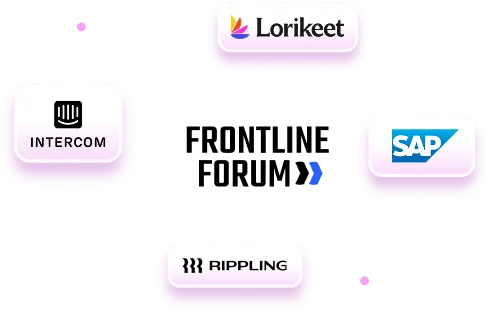
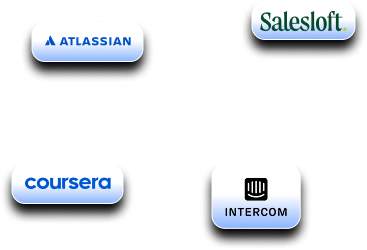

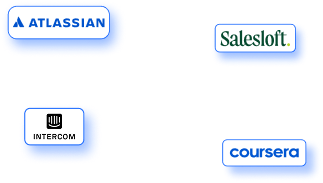
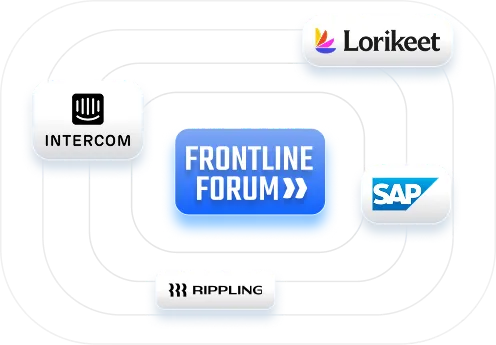
.webp)